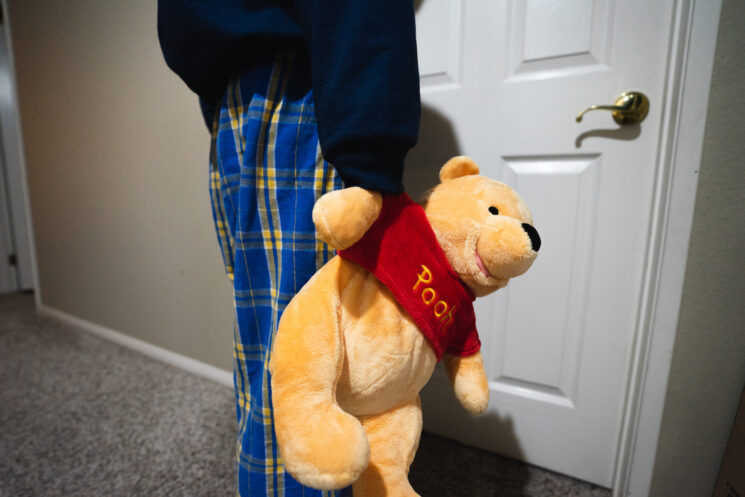
By Uy Pham
To address the effects of depression on children and adolescents through their academic and social lives, the US Preventive Services Task Force (USPSTF), a volunteer panel of experts under the US Department of Health and Human Services, commissioned a report to evaluate the benefits and harms of screening children for major depressive disorders (MDD).
Through a nine-page report, the USPSTF concluded with a “modernate net benefit” recommendation for screening children ages 12-18 for MDD and suggested certain implementation plans and additional resources. The report also recognized the higher suicide rates among children in the Black and/or LGBTQIA+ communities and emphasized the classification of depression as a disability.
“We don’t normally think about depression as a disability. In fact, we often make people feel like they’re weak, or like something’s wrong with them,” FVHS Student Support School Psychologist Cynthia Olaya said. “It really is like any other disability… it’s invisible. [Depression] is a real thing, and people aren’t just making it up.”
The report cited a multitude of genetic, environmental, biological and psychological factors for the development of MDD, including childhood treatment, social interactions, family history and prior medical problems. In recent times, the circumstances of the COVID-19 pandemic greatly impacted the mental health of many, but especially students.
“There was already a worsening mental health crisis of teeangers prior to the pandemic. We were already seeing numbers of anxiety and depression dramatically increase,” Olaya said. “The pandemic just absolutely accelerated that problem and made things much worse [due to] the isolation, the lack of interaction with people and the inability to get your needs met socially really took a toll for people.”
Depression is not the only mental health issue children face. Olaya says that other FVHS school psychologists deal with anxiety and suicidal ideation in addition to depression on a daily basis.
Organizations have taken action to address various aspects of the growing mental health crisis. The USPSTF issued a separate recommendation that all children ages 8-18 should be screened for anxiety. Furthermore, the American Academy of Pediatrics (AAP) recommended a set of guidelines for well-trained primary care physicians to screen and treat children for MDD. This year, the AAP issued another recommendation for pediatricans to screen children for suicidal risk.
However, Olaya notes that it is difficult to determine whether pediatricians actually screen their patients. According to Olaya, for some students their pediatricians conduct screenings, but for other students their pediatricians do not. The recommendations can only suggest, not require greater awareness for mental health.
With school being a place where students spend the majority of their time, it also becomes important for students to be able to receive support from those around them on campus.
“[FVHS] encourages mindfulness and meditations… the positive change has been that we’re talking about [mental health]. There’s awareness around it,” Olaya said. “[Times] are different for [students now], and teachers seem to get that. There’s teachers, administrators and resources going into helping improve mental health for students nationwide.”
However, students still feel that a majority of their teachers are not taking drastic steps to support students’ mental health.
“Personally, from my experience, teachers often don’t touch upon mental health or personal life outside of school. They’re more fixated on academics and certain expectations that we students must meet,” junior David Palamartz said. “One teacher that does stand out the most to me is [Adrianna] Acosta, who is the only teacher I ever had that supports us by touching upon sleep, self-improvement and reaching our goals.”
Other students share a similar sentiment that most teachers seem to constantly prioritize academic goals before mental health.
“Teachers don’t touch on [mental health] usually, they care more about the class itself [and] are focused on academics and expectations that students have to meet,” senior Jimmy Nguyen said. “[Emily] Barro was my health teacher and every single ‘Mindful Monday’ really helped me get past the chaos of the weekend.”
Barro, a science teacher, recently announced a new activity to support her students’ mental health: yoga for one hour after-school on Fridays that all students can attend.
“Friday is the perfect day to destress and leave it all behind before we head home for the weekend,” Barro writes on the signup form for the after-school yoga. “Feel how amazing it is when the mind, body and heart are all united in the same place at the same time.”
Schoolwide, FVHS supports their students through school events addressing mental health. Hosted by the Supervisory Club, FVHS has two Wellness Weeks scheduled for this year; one scheduled for Nov. 7 through Nov. 9, and the other May 22nd through May 25th. Last year, Barons were able to spend time addressing their mental health needs through different activities, games and information.
While the report does not introduce new information, it does reaffirm a crisis in our society that needs to be addressed. As a result, students need to support each other.
“Listen nonjudgmentally, but also know when something is out of control. When a friend is coming to you with something you are worried about, get help,” Olaya said. “You need to know when you need to bring your concerns to an adult you trust and take other action because a friend might really need that.”
For students struggling with mental health issues, the key words are to get help. Speak to an adult you trust. Please visit bit.ly/help4barons for additional resources as well.
“We’ve stigmatized getting help for mental health issues for so many years. High school is supposed to be fun, and we want you to have fun [but] sometimes that means addressing things that get in the way,” Olaya said. “We want people to ask for help because it makes a [lifelong] difference.”





